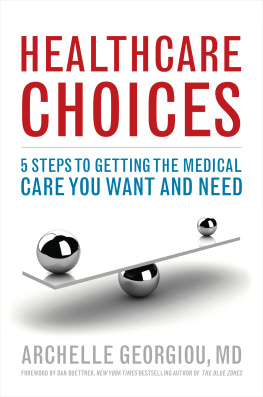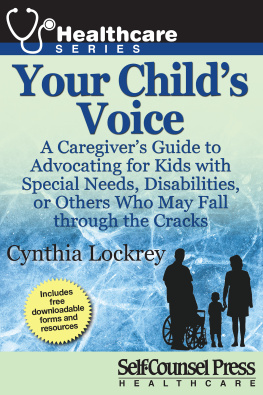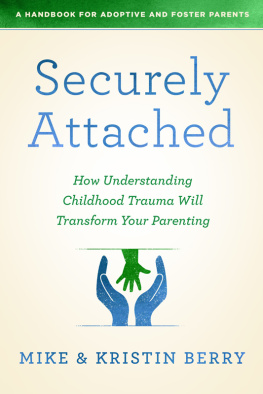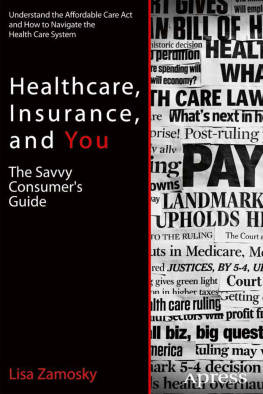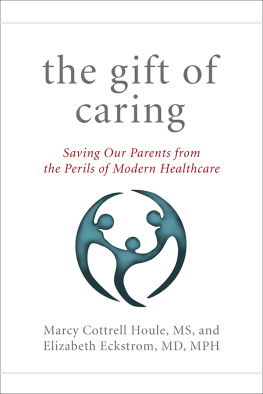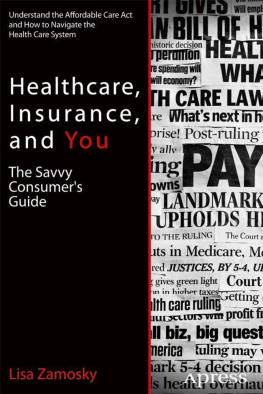Meghan L. Marsac, PhD, is a pediatric psychologist and a tenured associate professor at the University of Kentucky and Kentucky Childrens Hospital. Dr. Marsac is a leader in the field of pediatric medical trauma, having published more than fifty-five academic articles and nine chapters on this topic. Her primary professional goal is to improve the experience of living with medical conditions for children and families. Her work is represented in leading medical journals such as JAMA Pediatrics and Pediatrics and leading health psychology journals such as the Journal of Pediatric Psychology and Health Psychology. Dr. Marsac currently serves on the editorial board of the Journal of Pediatric Psychology and Journal of Traumatic Stress. Dr. Marsac has also given hundreds of talks on understanding and promoting adjustment to injury and illness in children and their families. She is CEO of the Cellie Coping Company (www.celliecopingcompany.com), which has distributed over two thousand coping kits to families of children with medical conditions. In addition, Dr. Marsac specializes in training medical teams in the implementation of trauma-informed medical care. Clinically, Dr. Marsac implements evidence-based practices to facilitate families management of medical treatment and emotional adjustment to challenging diagnoses and medical procedures.
Melissa J. Hogan, JD, is a consultant on clinical trial design and patient outcome measures in rare and neurodegenerative disorders. She also serves as a patient representative to the U.S. Food and Drug Administration and on the FDA/CTTI Patient Engagement Collaborative with the goal of incorporating the patient voice into the processes for U.S. drug and device evaluation and approval. She was previously the cofounder and president of Project Alive, a leading research and advocacy foundation for patients with Hunter syndrome, and prior to that she worked as a corporate health care attorney. She is published in journals such as Molecular Genetics and Metabolism and is a requested speaker at industry conferences on topics ranging from patient advocacy to clinical trial design. Her interest and research on medical trauma was sparked by her participation with her youngest son in a clinical trial for over ten years, along with weekly infusions and ten specialists.
DR. MEGHAN MARSAC
This book is a passion project of mineone that aims to help me reach my goal of making the medical world a better place for kids and their families.
Id like to first thank my patients and their families, who inspire me and teach me daily: your strength and struggles drove me to write this book. Thank you for allowing me the privilege of being a part of your journeys and for sharing your worlds with me.
Thank you also to my mentors for encouraging me to walk my own path. Id particularly like to thank Drs. Nancy Kassam-Adams, Melissa Alderfer, Lamia Barakat, Jeanne Brockmyer, Ethan Benore, and Flaura Winston, who have stuck with me over many years and taught me all about medical trauma and writing.
To the University of Kentucky, College of Medicine, and especially Drs. Scottie Day and Lindsay Ragsdale: thank you for your continued support and for encouraging me to write this book as a resource for the families we serve and beyond.
Thank you also to my coauthor, Melissa, who is one very talented, strong, persuasive, and determined woman. The decision to write this book with you was always a yes. To our agent, Steve Harris from CSG Literary Partners: thank you for recognizing the merit of this work. Thank you also to the dedicated team at Rowman & Littlefield, our publisher, for their work on this book.
Id also like to thank Lori Sawicki, a fellow writer, who taught me the lay of the land and gave me all kinds of ideas and feedback on this book.
Thank you to my tribe, my amazing friends who show up with food, flowers, wrenches, texts, and phone calls when the going gets tough.
To my parents, Rita and Bob Guthrie, and brothers, Rich and Dave Guthrie, who always have my back, no matter what. And thank you, Mom, for reading this book even while recovering from surgery and taking care of everyone else... thats the thing about deadlines. And Dad, for fitting reading this book into an already crazy schedule.
And finally, to my children, James and Miles, who bring me more joy than I can describe and have redefined adventure in my life: You are totally awesome. Thank you for sharing our time together so I could write this book.
MELISSA J. HOGAN
Ive always been a writer, starting with the book I wrote in eighth grade and continuing with the medical research articles I write now. I love writing, but it took me a long time and the support of a host of people to see that in myself, even though they saw it all along. I will be forever grateful to all of them.
To my children, Tyson, Brock, and Case, my grief is that your trauma was the impetus for this book. But sometimes out of ashes comes incredible beauty, and my hope for each of you is that what Ive learned about trauma will continue to serve you and our relationships well in the years to come. I love you more than you will ever know.
Without the careful observation of Jane Hancock, my mother, who first suggested a diagnosis for my youngest son, I know this story would have turned out much differently. Thank you, Mom, for that and so much more. To my father, Ron Hancock, and to Oma Peg, thank you for all your support.
Although the last few years have been a storm, I could not have fared so well without the insight, support, and laughter of my brother Nate Hancock. You are a good man. And also to my brother Chris Hancock, my heart is with you.
Without the MPS community and the health care providers in it, I would not have started my journey investigating pediatric medical trauma. Jamie Fowler and Dr. Kendra Bjoraker specifically shared information and insight in those early challenging years. Special thanks goes to Dr. Joseph Muenzer and his team at the University of North Carolina Childrens Hospital as well as the clinical research team at Vanderbilt Childrens Hospital for their compassionate care for my son Case. Many thanks also to the team at Project Alive, who selflessly serve families on the path toward a cure for Hunter syndrome, and specifically the Dragon Moms, whose friendship is equal parts fire, wings, grief, and laughter.
To the therapists who have served me and my children: your knowledge and experience with trauma is a gift. We are safer and healthier because of you.
I am grateful to my colleagues in medical research, from those at the Food and Drug Administration to rare disease nonprofits to those in the pharmaceutical industry, who have grown more and more receptive to understanding how medical trauma can affect clinical trial participants and even the data as a result.
A very special thanks to all my writing friends and masterminds, especially to those who read and made suggestions to drafts of this book. Many thanks go to my coauthor, Dr. Meghan Marsac, for responding to an email from someone you didnt know about a topic in which you are a more respected expert than me. To our agent, Steve Harris from CSG Literary Partners, and the talented team at our publisher, Rowman & Littlefield: thank you for believing that this subject needed a voice on the shelves. To my SHOTS writers collective and fellow Hope*writers: thank you for your encouragement. Remember to write the books that your soul compels you to write. And to my writing mentors, Judge Alice Batchelder, Professor Teresa Brostoff, and Professor Alan Meisel: thank you for teaching me and believing in me.
Finally, there are those who have walked this challenging journey closely with me, those who sacrificed greatly and whose own stories may never be told. You know who you are. Your reward may not come in this lifetime, but hear it from me: thank you.



